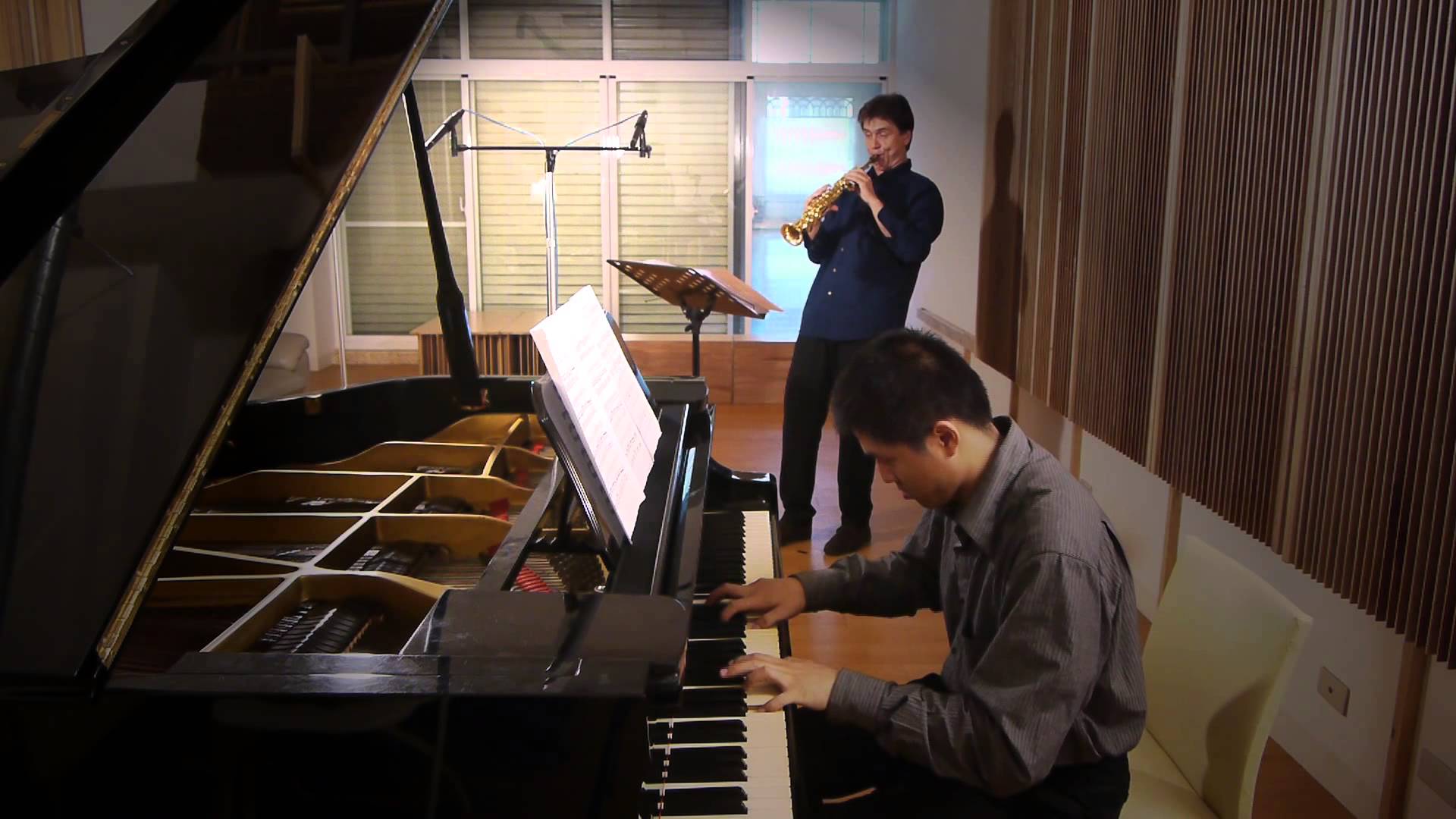Collaborations soar at this year’s edition, blending traditional Chinese instruments with everything from bagpipes to saxes

Born in Taiwan and a Vancouver resident since 1994, Tung has made trans-Pacific partnerships a major part of her festival’s mandate. This year’s guests are the four members of her native country’s innovative ensemble Ka Dao Yin—whose members play zheng (a harplike zither), sheng (mouth organ), piano, melodica, and saxophone—and their presence flags another Sound of Dragon principle: cross-pollination. Just as Tung is comfortable playing traditional Chinese classics, Silk Road fusion sounds (with the Orchid Ensemble and Lalun), or more improvisatory forms with Birds of Paradox, her festival incorporates everything from free interplay to through-composed scores.
This year, Sound of Dragon is also moving into interdisciplinary work by bringing painting into the mix, thanks to the presence of Tung’s brother Li, an acclaimed visual artist based in Taipei.
“My brother, he’s two years older than me, so for as long as I can remember he was studying painting, from very young,” Tung recalls in a telephone interview from her East Vancouver home. “And, actually, I studied painting as well, from the same teacher.
 “I wasn’t as good as him,” she adds with a laugh, “and what I really wanted to do was to study the erhu.”
“I wasn’t as good as him,” she adds with a laugh, “and what I really wanted to do was to study the erhu.”
This year’s festival isn’t the first time the Tung siblings have collaborated: his paintings have often inspired her compositions. But this time Li Tung will be painting live, on-stage, responding to the musicians around him while they, in turn, will take their cue from his visual output.
“In improvised performance, where you hear the music and see the painting being made, the influence is life,” Tung says, asked if there’s any particular model for this kind of collaboration. “So that automatically would be a big part, along with what the painter hears and what the musicians see. And the musicians can also work from the movements he does, ’cause he works on a large scale. It’s not like he’s a painter doing it on a table or on an easel: he makes big brush strokes, so you can actually see the movement of the brush, see how he walks around the canvas. It’s very physical. And usually he has this very flowing quality, in his use of the ink and the brush.”
Tung goes on to explain that interdisciplinary work is common in Taipei’s small, close-knit, and youthful arts underground. “From early on they automatically mix genres,” she says. “Here, we mostly have musical improvisers or dancers or theatre; they’re separate. But in Taiwan it’s all mixed.”
One of Sound of Dragon’s most radical presentations is on opening night—a program called light shadow fire. For this, NOW Society improvisers Lisa Cay Miller (piano), Ron Samworth (guitar), and Clyde Reed (upright bass) will join Ka Dao Yin’s Shih-Yang Lee (piano and melodica) and Klaus Bru (saxophone), plus Lan and Li Tung, for a night of spontaneous creation. Lee and the Tungs will also close the festival on Sunday (April 24) in conjunction with wildman pianist Paul Plimley, another Vancouver improviser with an international reputation. It’s a show that Lee, in particular, is excited about.
“Improvisation always has this relationship between competition and cooperation with each other,” he says in a separate interview. “To play with a veteran musician like Paul is always a big learning experience for me. We have a saying: ‘The stronger one’s opponent is, the stronger one will become.’ ”
Between these two poles, the festival encompasses everything from solo performances to bagpipe and suona (Chinese oboe) duets to an appearance by the Vancouver Inter-Cultural Orchestra, performing mostly new works by Canadian composers. Another significant undertaking will be the debut of the Sound of Dragon Ensemble, an all-star troupe that Tung hopes will have a life beyond festival season.
“We’re starting with a small ensemble to have a good core, and then we can look forward to different projects, bringing in different instruments and musicians,” Tung says, noting that she’s already assembled more than 30 original compositions for the new group, thanks to a well-received international call for scores. “It would be interesting to have an ensemble of all erhus, for instance!
“We think of Sound of Dragon as a society that serves the whole community, not just a few musicians,” she adds. “So we should have the flexibility to be able to involve different performers—and we’ll see how we can develop this flexibility in the future.”
Based on what’s in store for Vancouver this weekend, the future looks very bright.
Sound of Dragon takes place at the Western Front and the Roundhouse Community Arts and Recreation Centre from Thursday to Sunday (April 21 to 24)
 Ka Dao Yin’s Shih-Yang Lee and Klaus Bru.
Ka Dao Yin’s Shih-Yang Lee and Klaus Bru.
